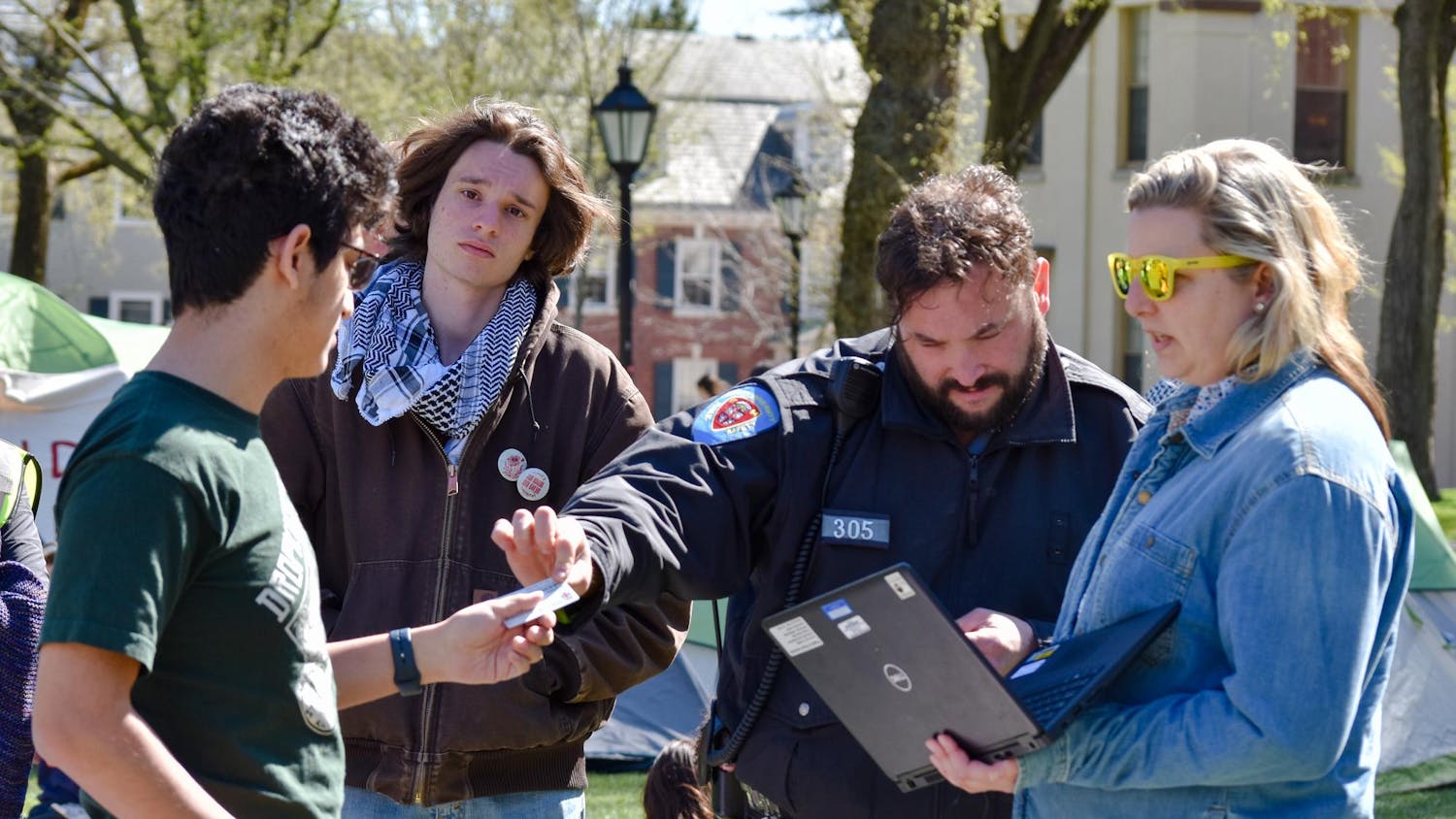As controversy surrounding the National Security Agency’s surveillance programs continues to brew, Bruce Selya, senior federal judge on the U. S. Court of Appeals for the First Circuit, spoke Monday on the inner workings of the Foreign Intelligence Surveillance Court, including concerns about secrecy and privacy.
The lecture, entitled “The View from Inside the FISA Courts,” was the first in a series of security seminars sponsored by the Watson Institute for International Studies as part of its ongoing expansion and redesign.
Over 40 faculty members, undergraduates and graduate students converged in the Joukowsky Forum for the seminar, which aimed to foster discussion on how to ensure national security while respecting the freedom and privacy of individual citizens, said Richard Locke, director of the Watson Institute.
Selya, a former chief judge of the U.S. Foreign Intelligence Surveillance Court of Review, began the lecture by describing the behind-the-scenes proceedings of FISCOR and FISC. FISC judges examine proposed applications for surveillance warrants and programs, approving, suggesting amendments to or declining the applications, Selya said. This process “weeds out” applications that would be denied in further stages of review and encourages them to be withdrawn, he said. Contrary to statistics claiming FISC has around 99 percent approval rates for applications, only around 73 percent of applications are actually accepted, he said.
Secrecy emerged as a central topic in the lecture. Secrecy is a “normal” and “precedented” practice in the intelligence and surveillance community, Selya said, adding that the methods of secrecy employed by FISC are comparable to the actions taken by the Providence police when holding private meetings to obtain search warrants.
Though necessary, these secret proceedings are a major fault in the system, he said. “Opinions of the court are kept secret long after dealings are resolved,” he said, adding that he advocates publishing more judicial opinions, but faces difficulties with “national security officials who do not want to declassify anything.”
Selya expressed hope for the future of the intelligence and surveillance community with the help of the “impressive group of individuals” in the industry. He called for greater transparency and “minimalization,” in which surveillance programs reduce their amounts of inadvertently acquired information not crucial to their goals.
In a question-and-answer session that followed, Josh Liebow-Feeser ’15 asked whether it is problematic that Congress and judges may not fully understand the technology behind surveillance programs.
Judges constantly deal with issues they do not fully understand “until they have to in the context of that case,” Selya responded.
Timothy Edgar, a visiting fellow at the Watson Institute, and a faculty member from Roger Williams University expressed concern about Selya’s comparison of FISC’s secrecy methods and those the Providence Police employ. The “bulk programs” employed by surveillance programs could benefit from a panel of attorneys to add more voices to the decision-making process, Edgar said.
“I think it’s an awful idea,” Selya countered. An alternative voice would slow down the process and result in “no real gain,” he added.
“Do you think the system works?” asked Peter Andreas, associate director of the Watson Institute. “Will anything positive emerge from the Snowden scandal?”
Selya responded that the system works, but not perfectly. “It’s kind of like democracy itself. It’s not a great system, but it’s better than any other system I know,” he said. Snowden’s actions were “treasonous,” but there is a “silver lining” to the controversy in that it could result in reforms, Selya said.
“The best part was actually the questions and the answers,” said Jackey Lane ’14. “In the Brown environment everything is in a bubble,” so his opinion was “refreshing,” Lane added.
The seminar was a “reaffirmation where you have thoughtful, intelligent people who are looking at this issue and trying to balance the security and privacy concerns,” said Sue Eckert, senior fellow at the Watson Institute.
ADVERTISEMENT




